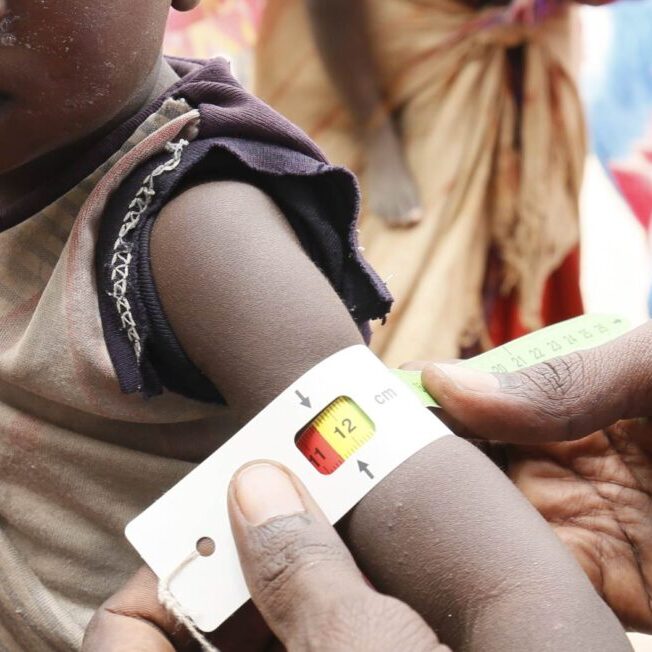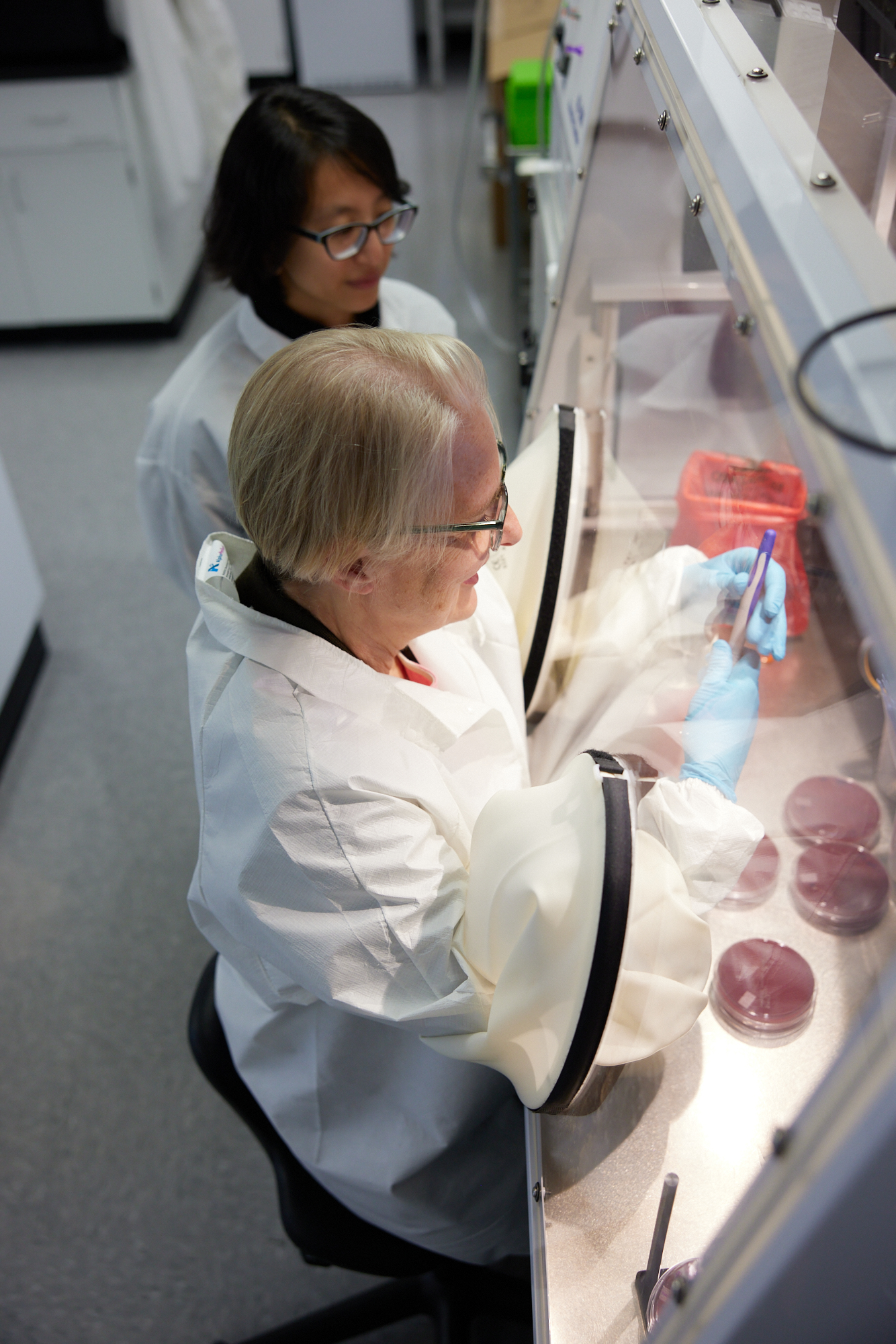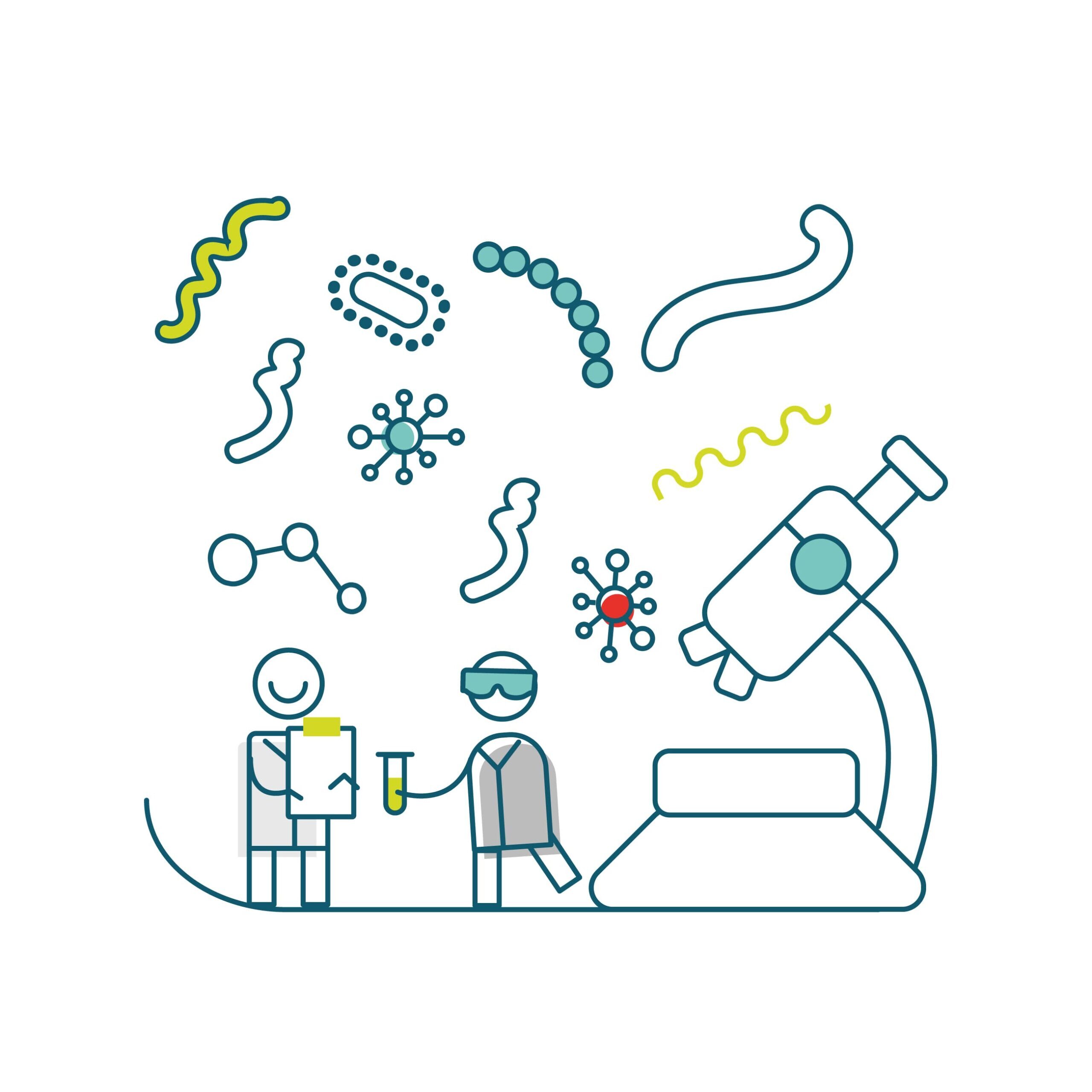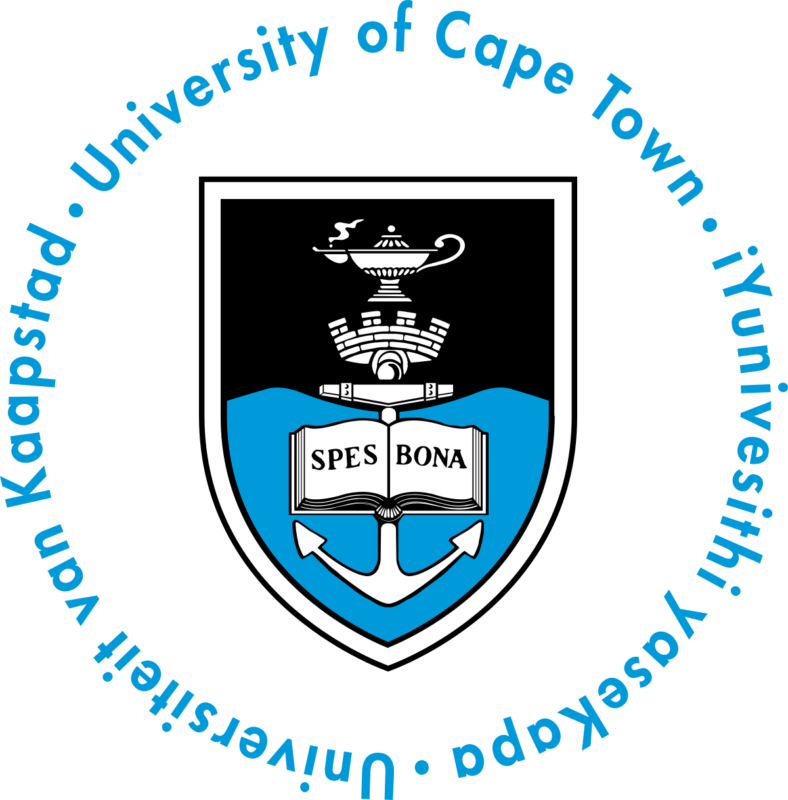
An 18-month boy has his mid-upper arm circumference measured, as part of a screening program in Kenya identifying children with Severe Acute Malnutrition. Photo Credit: Russel Watkins/DFID. Reprinted under Creative Commons License
Harnessing the Microbiome to Prevent and Treat Malnutrition
Severe acute malnutrition results in nearly 2 million preventable child deaths every year. OpenBiome's program in Malnutrition is bringing together a coalition of scientists to advance new therapies for this urgent public health threat.
The microbiome plays a critical role in the cycle of malnutrition and diarrheal diseases
Healthy nutrition goes beyond food intake. Growth and development also require the right nutrients and an ability to absorb them in the gut. In the last decade, key advances have expanded our understanding of how the microbiome converts food into useful nutrients and helps develop the immune system. Children who suffer malnutrition often lack the microbes capable of maximizing the nutrition available, poorly absorb nutrients, and have an increased risk of infectious diarrhea.

Photo Credit: Congerdesign via Pixabay
The Global Impact of Malnutrition

children under 5 years of age are affected by wasting (defined as low weight-for-height).

children under 5 years of age are affected by stunting (defined as low height-for-age).

of childhood deaths under 5 years of age are linked to undernutrition.
"As a non-profit leading the way in translating microbiome research into patient care, we believe that enhancing childhood malnutrition outcomes could be one of our field's most significant impacts. With the potential to save thousands of lives annually, we feel an urgent responsibility to apply this science and rigorously evaluate the effectiveness of microbiome-directed interventions."
- Dr. Majdi Osman, Chief Medical Officer at OpenBiome


Core Activities
CONVENING: Bringing together the world's leading scientists on microbiome science and malnutrition to deliver a new set of interventions for malnutrition
RESEARCH: Leading the development of novel products for malnutrition
CLINICAL TRIALS: Launching clinical trials of microbiome directed interventions for malnutrition
TRAINING: Sharing know-how and supporting a global network of scientists to widen access to translational microbiome research for child health
Spotlight on THRIVE
OpenBiome's inaugural global health study, Transfer of Healthy Gut Flora for Restoration of Intestinal Microbiota Via Enema (THRIVE) evaluated whether fecal microbiota transplantation (FMT) can help treat children with pediatric Severe Acute Malnutrition (SAM) who have not responded to standard treatment alone.
SAM stunts the growth of 20 million children worldwide, primarily from developing countries, and contributes to 1 million deaths each year.
- SAM generally affects children under five years of age.
- SAM is a persistent problem in South Africa with 4.5 new cases of SAM per 1000 children.
- Over 35% of children with SAM do not respond to the standard treatment of nutrient-enhanced foods and antibiotics.
The THRIVE study is the first to explore broad-spectrum microbiome interventions for the treatment of malnutrition and could catalyze novel therapeutic avenues to address malnutrition.

Connect With Us
If you're interested in learning more about the Malnutrition Program at OpenBiome or would like to discuss a potential collaboration, please reach out using the provided email.
OpenBiome Malnutrition Program






